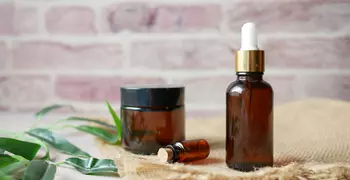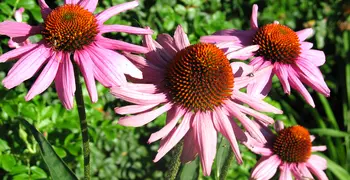Manage Insomnia Naturally
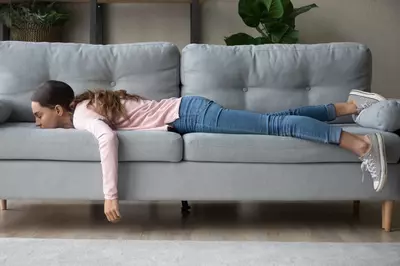
If you toss and turn throughout the night, unable to find decent rest, you’re not alone. Recent surveys indicate that 30% of adults experience short-term insomnia and about 10% experience long-lasting insomnia in a given year, making it the most common sleep problem in the United States. Its most common symptoms are the inability to fall asleep at bedtime or stay asleep during the night, causing drowsiness and fatigue the following day.
Insomnia, the struggle to fall or stay asleep, can take different forms and last for varying lengths of time. Short-term insomnia, called acute insomnia, usually lasts a few days and is often caused by stress, anxiety, or disruptions in your daily routine, like travel or work schedule changes. Concerningly, an acute problem can become chronic insomnia, a long-lasting difficulty falling asleep that can last for months or years. Underlying medical conditions like cancer, common medications such as those we take for high blood pressure, substances like alcohol, or mental illness can increase our risk for chronic insomnia.
While acute insomnia may improve on its own as the underlying stress goes away, chronic insomnia often requires professional help and treatment to manage the root causes and get better sleep.
If you are having trouble sleeping, you should first visit your healthcare provider to talk about your symptoms and get a physical examination to rule out any underlying health conditions.
Take charge of your sleep
There are steps you can take to manage the circumstances that cause your sleeplessness and return to a more consistent and restful sleep schedule. Be aware that there may not be a single solution; rather, taking a broad look at all the factors in your life that may affect sleep is the best approach to improving your sleep.
Improve sleep hygiene.
 This includes maintaining a consistent sleep schedule, avoiding caffeine and alcohol before bedtime, creating a relaxing bedtime routine, and creating a dark, quiet and cool sleep environment.
This includes maintaining a consistent sleep schedule, avoiding caffeine and alcohol before bedtime, creating a relaxing bedtime routine, and creating a dark, quiet and cool sleep environment.Make some lifestyle changes.
What you do during the day can be just as important as what you do when you lie down at night. Keep your brain and body active during the day. The better you “wake”, the better your “sleep”. Avoid caffeine, alcohol, and nicotine, which can disrupt sleep. Avoid heavy, carbohydrate-laden meals 1-2 hours before bedtime
 Practice relaxation techniques.
Practice relaxation techniques.This can include techniques such as progressive muscle relaxation, mindfulness meditation, and guided imagery. Basic relaxation techniques can help you calm your mind and body so that you can rest. Deep breathing, progressive muscle relaxation, and guided imagery (imagining peaceful, relaxing places) are all effective ways of gently guiding your body into a relaxed state.
Try yoga or tai chi.
These exercises can help improve general wellness by relieving stress, and improving sleep, mental/physical health and balance
Limit exposure to screens before bedtime.
 The blue light emitted by screens can interfere with the body's production of melatonin, a hormone that regulates sleep.6 If you must be on a device in the hours before bedtime dim your screen and use blue light filters (night Shift on Apple products, Night Light on Android products) or use blue light blocking glasses.
The blue light emitted by screens can interfere with the body's production of melatonin, a hormone that regulates sleep.6 If you must be on a device in the hours before bedtime dim your screen and use blue light filters (night Shift on Apple products, Night Light on Android products) or use blue light blocking glasses.Aromatherapy
Several essential oils possess calming and relaxing effects, making them effective sleep aids. Lavender oil, has been demonstrated to reduce anxiety, promote relaxation, and enhance sleep quality. Chamomile oil, another popular choice, exhibits calming and sedative properties.
Do your best to manage stress.
 Stress can interfere with sleep, so finding ways to manage stress, such as through meditation or deep breathing, can be helpful. If you lie awake at night with your mind buzzing with work, make a to-do list before bed and set it aside, knowing that you can take care of everything tomorrow.
Stress can interfere with sleep, so finding ways to manage stress, such as through meditation or deep breathing, can be helpful. If you lie awake at night with your mind buzzing with work, make a to-do list before bed and set it aside, knowing that you can take care of everything tomorrow.If you are a night owl consider melatonin.
Melatonin is a natural hormone released by our brains when the sun goes down. Individuals who are night owls (late to sleep, late to wake) can benefit from a small dose (1mg) taken several hours before bedtime. This works especially well when combined with bright light in the morning.
Consider herbal and dietary supplements.
Certain herbs and supplements, such as valerian root and iron, can, in the right circumstances, improve sleep quality. However, it's important to talk to a healthcare provider before taking any supplements to avoid any medical complications. Additionally, many people describe that chamomile tea promotes relaxation before sleep amongst users.
- See a Sleep Specialist. Cognitive behavioral therapy (CBT), delivered by an expert, is the best treatment for insomnia. The cognitive part of CBT teaches you to look for and change beliefs that affect your ability to sleep. This type of therapy can help you control or get rid of negative thoughts and worries that keep you awake. The behavioral part of CBT helps you develop routines that promote restful sleep.
Herbal and dietary supplements
There are several options for non-pharmaceutical treatments for insomnia. Be sure to tell your healthcare practitioner about any herbs or supplements you use on your own.
- Valerian is a popular botanical herb that has long been used for its sedative effects. While many people use valerian to help them fall asleep and some clinical trials have shown it to be helpful for the treatment of insomnia, larger reviews indicate that more trials are needed to conclusively prove its efficacy. (All studies agree, however, that valerian is safe to use for short 4-6 week periods at a time.)
- Melatonin is a natural hormone that regulates sleep and can also be taken as a supplement. Many people prefer melatonin to prescribed sleeping medications because it does not have a next-day “hangover” effect and is not addictive. Like valerian, much of melatonin’s effectiveness is anecdotal and based on small research studies. A 2013 meta-analysis demonstrated that melatonin increases total sleep time with overall improvement in sleep quality. The Natural Medicines Comprehensive Database has found that melatonin’s is possibly effective for insomnia, but larger, more quantifiable studies are needed.
- Chamomile can be taken as a bedtime tea. Though many report feelings of relaxation that are induced by chamomile, scientific evidence of its efficacy has not been proven.
Sleeping Pills
If you are dealing with a stressor or a major life event such as a loss of a close one or family issues, you may be prescribed sleeping pills. These are often best thought of as a temporary fix to get you the well needed rest that your body requires to function normally. Older sleeping medications are not meant to be taken on a regular basis due to the effects they could have.
- You could build tolerance towards the pills if taken regularly which reduces its effect.
- You could risk becoming dependent on the pills to fall asleep and hence, letting go of them would become difficult.
- Regular use of older sleeping medications can increase risk of cancer, organ damage, depression and memory problems.
If you choose to use a sleeping pill, it is important that you discuss with your provider any questions or concerns you have about your prescription and carefully research the potential side effects, medication interactions and risk of dependency.
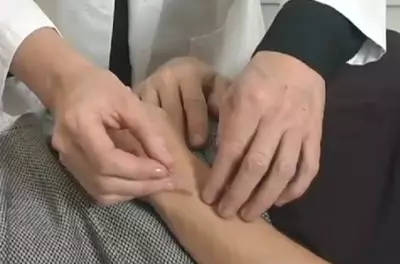
What is acupuncture like?
Interested in using acupuncture for insomnia? Watch this video to see what a typical acupuncture treatment is like.
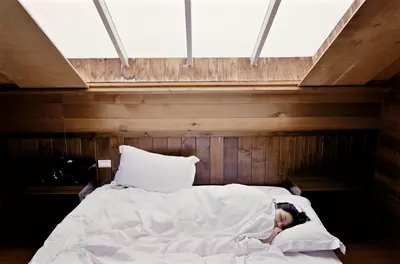
Insomnia in women
According to the National Sleep Foundation, insomnia is nearly twice as common in women than in men. This may be partly due to the fact that sleep is affected so profoundly by menstrual cycles, fluctuating hormones, and parenting responsibilities.
http://nccam.nih.gov/health/sleep/ataglance.htm#caminsomnia
http://www.nlm.nih.gov/medlineplus/druginfo/natural/940.html
http://www.webmd.com/sleep-disorders/features/sleeping-pills-pros-cons
http://www.sleepfoundation.org/article/sleep-related-problems/insomnia-and-sleep
http://www.webmd.com/sleep-disorders/guide/insomnia-symptoms-and-causes
Afonso, R. F., Hachul, H., Kozasa, E. H., Oliveira Dde, S., Goto, V., Rodrigues, D., . . . Leite, J. R. (2012). Yoga decreases insomnia in postmenopausal women: A randomized clinical trial. Menopause (New York, N.Y.), 19(2), 186-193.
Bent, S., Padula, A., Moore, D., Patterson, M., & Mehling, W. (2006). Valerian for sleep: A systematic review and meta-analysis. American Journal of Medicine, 119(12), 1005-12.
Brand, S., Holsboer-Trachsler, E., Naranjo, J. R., & Schmidt, S. (2012). Influence of mindfulness practice on cortisol and sleep in long-term and short-term meditators. Neuropsychobiology, 65(3), 109-118.
Cheuk, D.K., Yeung, W.F., Chung, K.F., Wong, V. (2012). Acupuncture for insomnia. Cochrane Database of Systematic Reviews; 9: CD005472.
Edinger, J.D., Wohlgemuth, W.K., Radtke, R.A., Marsh, G.R., Quillian, R.E. (2001). Cognitive behavioral therapy for treatment of chronic primary insomnia: a randomized controlled trial. JAMA; 285(14):1856-64.
Fernández-San-Martín, M.I., Masa-Font, R., Palacios-Soler, L., Sancho-Gómez, P., Calbó-Caldentey, C., Flores-Mateo, G. (2010). Effectiveness of valerian on insomnia: A meta-analysis of randomized placebo-controlled trials. Sleep Medicine; 11(6), 505-11.
Ferracioli-Oda, E., Qawasmi, A., Bloch, M.H. (2013). Meta-analysis: melatonin for the treatment of primary sleep disorders. PLoS One; 8(5):e63773.
Fismer, K.L., Pilkington, K. (2012). Lavender and sleep: A systematic review. European Journal of Integrative Medicine; 4(4), e436-e447.
Kozasa, E.H., Hachul, H., Monson, C., Pinto Jr, L., Garcia, M.C., Mello, L.E., Tufik, S. (2010). Mind-body interventions for the treatment of insomnia: a review. Rev Bras Psiquiatr. ;32(4):437-43.
Kripke, D.F., Langer, R.D., Kline, L.E. (2012). Hypnotics' association with mortality or cancer: a matched cohort study. BMJ Open;2(1):e000850.
Lee, I. S., & Lee, G. J. (2006). Effects of lavender aromatherapy on insomnia and depression in women college students. Taehan Kanho Hakhoe Chi, 36(1), 136-143.
Morin, C.M., Bootzin, R.R., Buysse, D.J., Edinger, J.D., Espie, C.A., Lichstein, K.L. (2006). Psychological and behavioral treatment of insomnia:update of the recent evidence (1998-2004). Sleep; 29(11):1398-414.
Oliveira, D., Hachul, H., Tufik, S., & Bittencourt, L. (2011). Effect of massage in postmenopausal women with insomnia: A pilot study. Clinics (Sao Paulo, Brazil), 66(2), 343-346.
Ong, J., & Manber, R. (2011). Mindfulness-based therapy for insomnia. Behavioral treatments for sleep disorders (pp. 133-141) Elsevier, Inc.
Sarris, J., Byrne, G.J. (2011). A systematic review of insomnia and complementary medicine. Sleep Medicine Reviews;15(2):99-106.
Yeung, W.F., Chung, K.F., Poon, M.M., Ho, F.Y., Zhang, S.P., Zhang, Z.J., Ziea, E.T., Wong, V.T. (2012). Acupressure, reflexology, and auricular acupressure for insomnia: a systematic review of randomized controlled trials. Sleep Medicine; 13(8), 971-84.
Megan Hull, Insomnia facts and statistics (26 May, 2022), The Recovery Village, Retrieved from https://www.therecoveryvillage.com/mental-health/insomnia/insomnia-stat…
’10 tips for a better night’s sleep’, The National Sleep Foundation, Retrieved from: https://www.thensf.org/sleep-tips/
‘ Sleep tips: 6 tips to better sleep’, Mayo Clinic, Retrieved from: https://www.mayoclinic.org/healthy-lifestyle/adult-health/in-depth/slee…
Hubbard, K., & Falco, F. J. E. (2015). Relaxation techniques. In A. D. Kaye, N. Vadivelu, & R. D. Urman (Eds.), Substance abuse: Inpatient and outpatient management for every clinician (pp. 337–357). Springer Science + Business Media. https://doi.org/10.1007/978-1-4939-1951-2_26
‘Yoga- What you need to know’, National Center for Complementary and Integrative Health, August 2023, Retrieved from: https://www.nccih.nih.gov/health/yoga-what-you-need-to-know#:~:text=Yog….
‘Blue light has a dark side’, Harvard Health Publishing (7 July 2020), Harvard Medical School, Retrieved from: https://www.health.harvard.edu/staying-healthy/blue-light-has-a-dark-si…).
American Psychological Association. (2013, January 1). Stress and sleep. https://www.apa.org/news/press/releases/stress/2013/sleep
‘Valerian: A safe and effective herbal sleep aid?’ The Mayo Clinic, Retrieved from: https://www.mayoclinic.org/diseases-conditions/insomnia/expert-answers/…
Tom Ryan, The best essential oils for sleep (13 April 2022), Sleepfoundation.org, Retrieved from: https://www.sleepfoundation.org/sleep-aids/best-essential-oils-for-sleep
‘Insomnia treatment: Cognitive Behavioral Therapy instead of sleep pills’ , Mayo Clinic, Retried from: https://www.mayoclinic.org/diseases-conditions/insomnia/in-depth/insomn…
Carmen Chai, 6 risks to know out before you take sleeping pills (5 September 2023), Everyday Health, Retrieved from: https://www.everydayhealth.com/news/risks-taking-sleeping-pills/
Alyssa Valentin, The long term effects of sleeping pills (5 September 2019), Clearbrook treatment center, Retrieved from: https://www.clearbrookinc.com/news/long-term-effects-of-sleeping-pills/…
